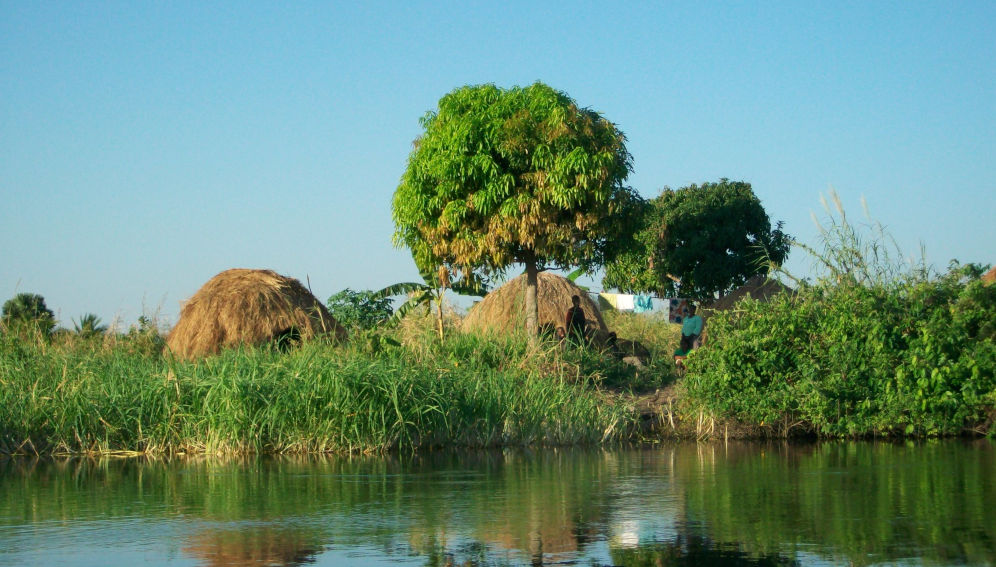SGCI News
The research project could provide clarity on the possibility of inter-basin transfer between Luapula River Basin and Kafue River Basin. Speed read Zambia water project aims to address climate impacts…
The research project could provide clarity on the possibility of inter-basin transfer between Luapula River Basin and Kafue River Basin.
| Speed read |
| Zambia water project aims to address climate impacts and boost water sustainability |
| It will explore merits of interbasin transfer between Luapula and Kafue river basins |
| Project should ensure reliable water supply for future generations |
By Scovian Lillian
[NAIROBI] A water conservation research project in the Upper Zambezi and Luapula river basins in Zambia could improve water management, raise low water levels and reduce power shortages caused by climate change impacts, a water researcher says.
Currently, the country is losing water resources because of changing weather patterns and rising temperatures, threatening basic needs like drinking water and farming.
Nyambe Imasike, professor of geology and coordinator of the University of Zambia’s Integrated Water Resources Management, says that the project to enhance the catchment protection and management of the two river basins will improve the quality of the ecosystem through better water management practices.
“This water conservation research project is already contributing to knowledge on the availability of water supply and sanitation, hydropower generation, flood control, and food security, particularly with climate change and variability.”
Nyambe Imasiku, professor of geology and coordinator of the University of Zambia’s Integrated Water Resources Management
“Zambia’s developmental challenges are centered on agriculture, manufacturing, mining industry diversification, followed by tourism, of which without water there will be no development,” Imasike tells SciDev.Net.
“Water is the main source of energy through hydropower and this drives the economy in Zambia.”
Imasike says the initiative aims to build understanding of water quality and availability and use that knowledge to establish solutions for cleaning up waste from mining. It will focus on managing water, energy, food and the environment as a whole.

A comprehensive report will be produced for the Zambian government on the possibility of inter-basin transfer between the Luapula and Kafue river basins, putting to rest an ongoing debate for or against transferring water from one basin to another.
Inter-basin transfer is the process of transferring water from one basin to another to improve water security in water-scarce areas.
Imasike says the project will ensure reliable water supply for future generations, addressing concerns about water availability.
The water conservation research project began in October 2020 as part of the O.R Tambo Africa Research Initiative (ORTARChi), which empowers young African water experts by providing research equipment and improving technical skills. It has enabled them to develop solutions such as using bacteria to clean up waste from mining in Zambia’s Copperbelt.
ORTARChi is being implemented by South Africa’s National Research Foundation and the Science Granting Councils Initiative (SGCI).
Launched in 2015, the SGCI supports 16 Sub-Saharan African science agencies, empowering them to fund research and driving development with strong evidence and policies.
“This water conservation research project is already contributing to knowledge on the availability of water supply and sanitation, hydropower generation, flood control, and food security, particularly with climate change and variability,” says Imasike.
He adds that the project contributes to the Sustainable Development Goal on water availability and sanitation, as well as goals on food security, economic growth, affordable energy, and biodiversity.
Related News
Voices of SGCI: Council leaders on the direction and ambition of SGCI 3
At the African Union’s Science, Technology and Innovation Week in Addis Ababa, earlier this month, leaders of science granting councils reflected on what SGCI Phase 3 represents for Africa’s science and innovation systems. From ownership and alignment to stewardship and sustainability, here are their voices…
Building Africa’s science future: inside the SGCI alliance
As Phase 3 of the Science Granting Councils Initiative launches on the margins of the African Union Summit in Addis Ababa last week, the SGCI Alliance Chair explains why this moment marks a decisive turning point for African science. Cephas Adjei Mensah describes what is…
Open call: Support for science granting councils in Sub-Saharan Africa
The International Development Research Centre (IDRC), through the Science Granting Councils Initiative (SGCI), has launched a call for proposals to support science granting councils in Sub-Saharan Africa in the establishment and operationalisation of the Capacity Strengthening Hub under Phase III of the SGCI-3. The Hub…
SGCI funded projects
Rwanda’s integrated approach to sustainable agriculture and nutrition
Project Titles & Institution Areas of Research Number of Projects being funded Project Duration Grant Amount In-Kind Distribution Council Collaboration with other councils





